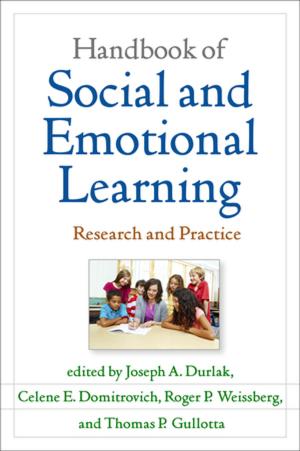The Craft of Life Course Research
Nonfiction, Health & Well Being, Medical, Nursing, Gerontology, Social & Cultural Studies, Social Science, Psychology, Developmental Psychology| Author: | ISBN: | 9781606233610 | |
| Publisher: | Guilford Publications | Publication: | August 3, 2009 |
| Imprint: | The Guilford Press | Language: | English |
| Author: | |
| ISBN: | 9781606233610 |
| Publisher: | Guilford Publications |
| Publication: | August 3, 2009 |
| Imprint: | The Guilford Press |
| Language: | English |
This book brings together prominent investigators to provide a comprehensive guide to doing life course research, including an “inside view” of how they designed and carried out influential longitudinal studies. Using vivid examples, the contributors trace the connections between early and later experience and reveal how researchers and graduate students can discover these links in their own research. Well-organized chapters describe the best and newest ways to:
*Use surveys, life records, ethnography, and data archives to collect different types of data over years or even decades.
*Apply innovative statistical methods to measure dynamic processes that result in improvement, decline, or reversibility in economic fortune, stress, health, and criminality.
*Explore the micro- and macro-level explanatory factors that shape individual trajectories, including genetic and environmental interactions, personal life history, interpersonal ties, and sociocultural institutions.
This book brings together prominent investigators to provide a comprehensive guide to doing life course research, including an “inside view” of how they designed and carried out influential longitudinal studies. Using vivid examples, the contributors trace the connections between early and later experience and reveal how researchers and graduate students can discover these links in their own research. Well-organized chapters describe the best and newest ways to:
*Use surveys, life records, ethnography, and data archives to collect different types of data over years or even decades.
*Apply innovative statistical methods to measure dynamic processes that result in improvement, decline, or reversibility in economic fortune, stress, health, and criminality.
*Explore the micro- and macro-level explanatory factors that shape individual trajectories, including genetic and environmental interactions, personal life history, interpersonal ties, and sociocultural institutions.















